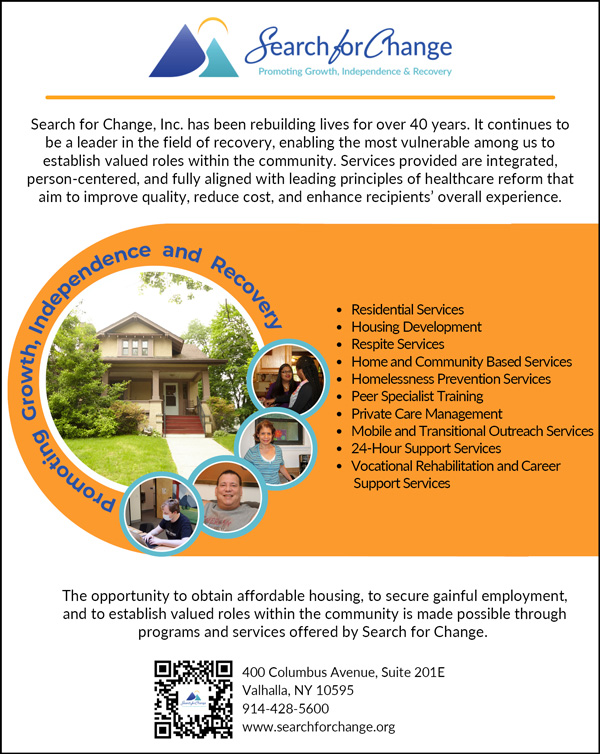It has been widely reported that individuals with chronic behavioral health conditions experience significantly diminished life expectancies (Chesney et al., 2014). This tragic phenomenon may be attributed, at least in part, to comorbid medical conditions commonly associated with the aging process. Maladies that afflict the general population, including diabetes, cardiovascular disease, obesity, and other indicators of metabolic dysfunction, are quite prevalent among individuals with serious mental illness (SMI), as are other diseases that curtail their lifespans. These conditions are often exacerbated by behaviors and lifestyle factors common among individuals with SMI, such as nicotine dependence and other substance use, nutritional deficiencies, limited access to primary and preventive care services, and widespread exposure to trauma. Inasmuch as Social Determinants of Health (SDoH), defined as the conditions in which individuals live, learn, work, and socialize, are more determinative of health outcomes than healthcare services, it is unsurprising that a population with insufficient access to SDoH would experience a disproportionate share of age-related illnesses and premature mortality. However, the plight of individuals with SMI cannot be solely attributed to diminished access to SDoH. This was affirmed by a robust longitudinal evaluation that revealed an early onset of age-related illnesses among a cohort of individuals with SMI. This investigation controlled for certain confounding variables to which premature aging might be attributed. That is, it found individuals with SMI were more likely to experience an early onset of afflictions characteristic of the aging process irrespective of habits or behaviors that would cause or exacerbate age-related illness (Wertz et al., 2021). These findings suggest providers of healthcare and social welfare services for individuals with chronic and severe behavioral health conditions must employ comprehensive approaches to mitigate adverse effects of age-related illness among individuals entrusted to their care.

An extensive body of research has affirmed the prevalence of physical health conditions among individuals with chronic and severe mental illnesses such as bipolar disorder, schizophrenia, and major depressive disorder (Buist-Bouwman et al., 2005). To uncover potential underpinnings of this relationship, researchers in New Zealand conducted a longitudinal evaluation that included 1,037 participants at the inception of their investigation, 997 of whom were still alive at its conclusion. These researchers administered comprehensive health assessments of participants beginning at birth and repeated at periodic increments thereafter. Final assessments were administered to participants upon their 45th birthday. Thus, this study yielded robust data sets that illuminated interrelationships among participants’ health conditions, living habits, and life circumstances from which meaningful conclusions could be drawn. The study’s longitudinal design permitted investigators to account for other variables to which the premature onset of physical illnesses commonly associated with the aging process might be attributed. Participants who developed a serious mental health condition during childhood or adolescence were significantly more likely to experience a subsequent onset of one or more chronic medical conditions than participants who did not develop a mental illness or corresponding diagnosis. These findings held even after certain factors known to cause or exacerbate certain medical conditions were eliminated. That is, they could not be attributed to poor childhood health, socioeconomic stressors, Body Mass Index (BMI), smoking, or the use of antipsychotic medications (medications commonly associated with metabolic dysfunction and other physical ailments) (Wertz et al., 2021). Moreover, the prevalence of physical ailments among individuals with mental illness was not limited to a specific manifestation of mental illness or select diagnostic classifications. Those with thought and mood disorders were similarly disposed to comorbidities and associated complications.
The foregoing study suggests individuals with SMI are predisposed to the premature development of various physical illnesses commonly associated with aging, but it does not discount the role of protective factors and evidenced-based interventions in ameliorating dysfunction. In an exhaustive survey of current and emerging best practices in health care for caring for older adults with SMI, Reynolds et al. (2022) highlight the role of certain clinical approaches in the restoration of individuals’ functional capacities and alleviation of chronic or debilitating symptoms. For instance, proven pharmacotherapeutic and psychosocial interventions for older adults with schizophrenia include the selective use of antipsychotic medications coupled with such manualized treatments as Cognitive-Behavioral Social Skills Training (CBSST). CBSST aids participants in developing cognitive behavioral strategies, identifying precursors to relapse, cultivating social networks, and improving engagement and communication with healthcare and social welfare providers. Randomized controlled trials of CBSST demonstrated significant improvement in participants’ social activities, cognitive insight, and mastery of problem-solving skills (Granholm et al., 2013). CBSST is one of several interventions that underscore the importance of holistic and integrated approaches to treatment for caring for older adults with chronic and comorbid health conditions. Other researchers have affirmed what is largely self-evident to current providers of healthcare and social welfare services. Optimal care must entail multidisciplinary approaches that include clinical, rehabilitative, preventive, and supportive services (Palinkas et al., 2007).
To this end, stakeholders in the plight of older individuals with chronic and comorbid health conditions must address enduring structural impediments to the provision of optimal care. An acute shortage of safe, affordable, and supportive housing opportunities for these individuals is a leading impediment to progress. Older individuals are also more likely than their younger cohorts to experience poverty and its attendant economic stressors (e.g., food insecurity, limited access to transportation, etc.). Clinically-focused service interventions, however promising, may falter if offered to individuals who are unstably housed, homeless, or deprived of other resources essential for lasting health and wellbeing. Stressors associated with housing and economic instability are known to exacerbate an array of health conditions, and their effects may be especially grievous for physically and psychologically frail individuals. Current trends in homelessness affirm the scope of a crisis visited upon the most vulnerable members of our community. Older adults are the fastest-growing age group of those experiencing homelessness. They constitute nearly half the homeless population, and their ranks are expected to triple by 2030 (Henderson et al., 2023). To the extent affordable and supportive housing is available for this population, its operators often lack the resources or operational capacities to satisfy tenants’ needs. A survey administered to supportive housing providers revealed rising concern among its respondents, 75% of whom reported they are unable to provide adequate care for older tenants with chronic and comorbid health conditions (Corporation for Supportive Housing, 2024).
Caring for older adults, particularly those who experience comorbid behavioral and physical health conditions, requires an integrated array of healthcare and social welfare services to achieve optimal health and stability. Isolated or siloed approaches to care and interventions that fail to address foundational components of health and wellbeing are bound to fail or, at best, produce suboptimal outcomes. Nothing short of a comprehensive restoration of the societal safety net will fulfill our obligation to the most vulnerable among us.
Ashley Brody, MPA, CPRP is Chief Executive Officer at Search for Change, Inc. He may be reached at (914) 428-5600 (x9228) or abrody@searchforchange.org.
References
Buist-Bouwman, M.A., de Graaf, R., Vollebergh, W.A.M., Ormel, J. (2005). Comorbidity of physical and mental disorders and the effect on work-loss days. Acta Psychiatrica Scandinavica, 6, 436-443.
Chesney, E., Goodwin, G.M., Fazel, S. (2014). Risks of all-cause and suicide mortality in mental disorders: a meta-review. World Psychiatry, 13(2), 153-160.
Corporation for Supportive Housing. (2024). Aging and thriving: A call to strengthen supportive housing for older adults in NYC. https://www.csh.org/wp-content/uploads/2024/01/Aging-and-Thriving_A-call-to-strenghten-supportive-housing_metro.pdf
Granholm E., Holden, J., Link, P.C., McQuaid, J.R., Jeste, D.V. (2013). Randomized controlled trial of cognitive behavioral social skills training for older consumers with schizophrenia: defeatist performance attitudes and functional outcome. American Journal for Geriatric Psychiatry, 21(3), 251‐262.
Henderson, K.A., Manian, N., Rog, D.J., Robison, E., Jorge, E., Al-Abdulmunem, M. (2023). Addressing homelessness among older adults: Final report. U.S. Department of Health & Human Services. https://aspe.hhs.gov/sites/default/files/documents/9ac2d2a7e8c360b4e75932b96f59a20b/addressing-older-adult-homelessness.pdf
Palinkas, L.A., Criado, V., Fuentes, D., Shepherd, S., Milian, H., Folsom, D., Jeste, D.V. (2007). Unmet needs for services for older adults with mental illness: comparison of views of different stakeholder groups. American Journal for Geriatric Psychiatry, 15(6), 530-540.
Reynolds, C.F. 3rd, Jeste, D.V., Sachdev, P.S., Blazer, D.G. (2022). Mental health care for older adults: recent advances and new directions in clinical practice and research. World Psychiatry, 21, 336-363.
Wertz, J., Caspi, A., Ambler, A., Broadbent, J., Hancox, R.J., Harrington, H., Hogan, S., Houts, R.M., Leung, J.H., Poulton, R., Purdy, S.C., Ramrakha, S., Rasmussen, L.J.H., Richmond-Rakerd, L.S., Thorne, P.R., Wilson, G.A., Moffitt, T.E. (2021). Association of history of psychopathology with accelerated aging at midlife. JAMA Psychiatry, 78(5), 530-539.





